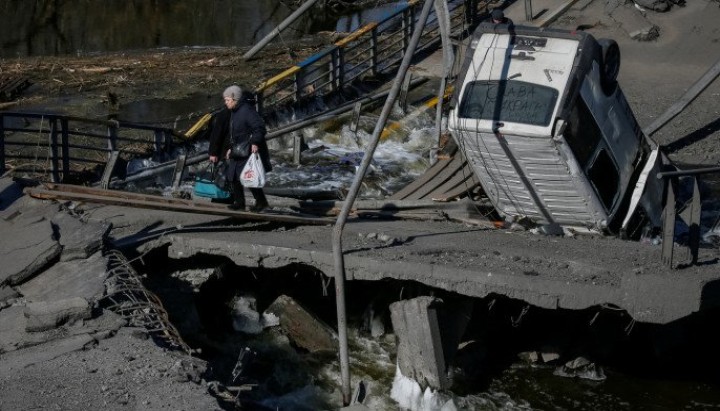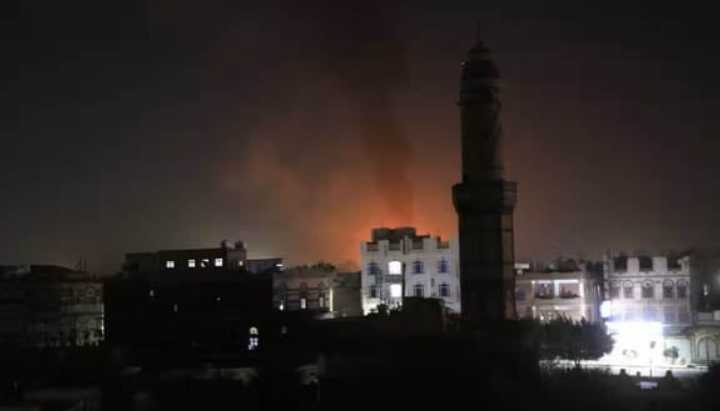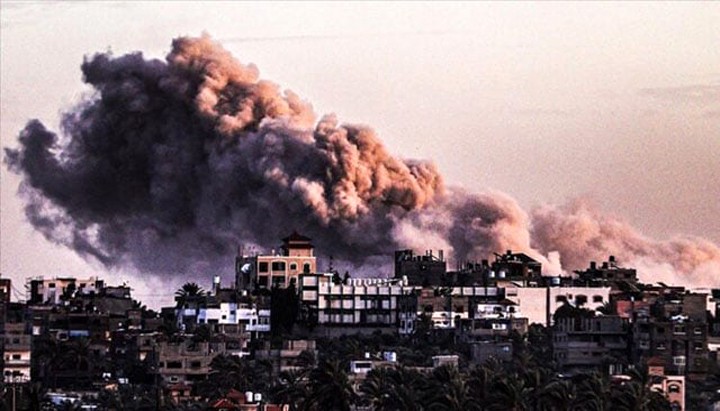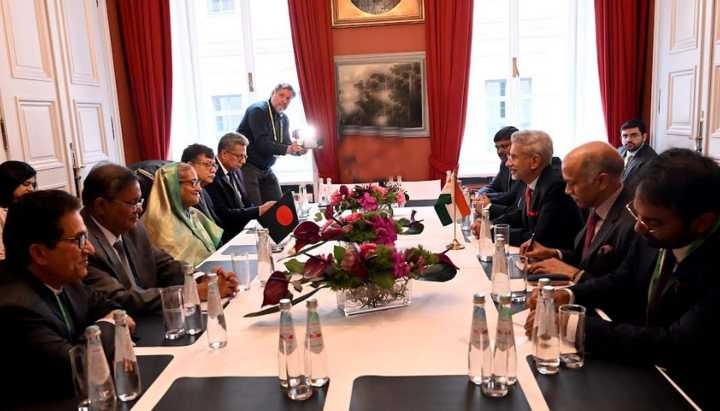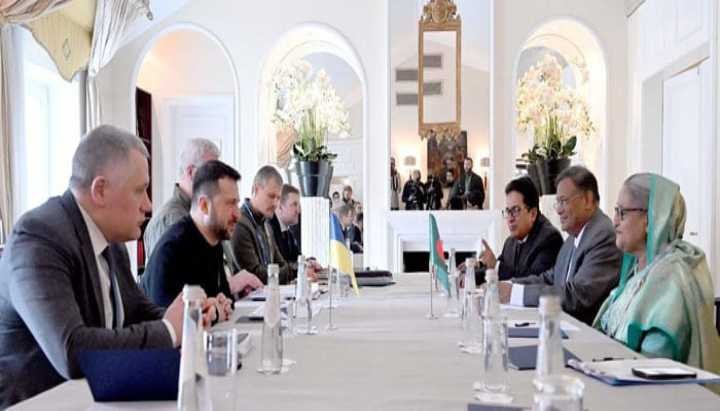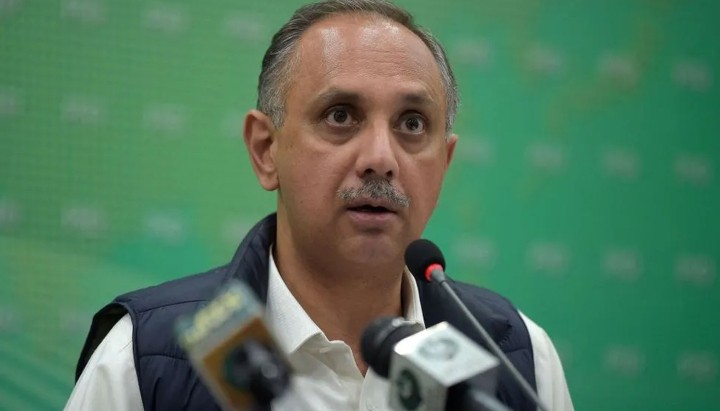A barrage of Russian
missiles hit a large Ukrainian base near the border with NATO member Poland on
Sunday, killing 35 people and wounding 134, a local official said, in an
escalation of the war to the west of the country as fighting raged elsewhere.
Russia's defence ministry said the air strike had destroyed
a large amount of weapons supplied by foreign nations that were being stored at
the sprawling training facility, and that it had killed "up to 180 foreign
mercenaries".
Reuters could not independently verify the casualties
reported by either side.
The attack on the Yavoriv International Centre for
Peacekeeping and Security, a base just 15 miles (25 km) from the Polish border
that has previously hosted NATO military instructors, brought the conflict to
the doorstep of the Western defence alliance.
Russia had warned on Saturday that convoys of Western arms
shipments to Ukraine could be considered legitimate targets.
Britain called the attack as a "significant
escalation," and US Secretary of State Antony Blinken responded with a
post on Twitter saying "the brutality must stop."
White House national security adviser Jake Sullivan,
speaking on CBS's "Face the Nation", warned any attack on NATO
territory would trigger a full response by the alliance.
Regional governor Maksym Kozytskyy said Russian planes fired
around 30 rockets at the Yavoriv facility.
Russian defence ministry spokesperson Igor Konashenkov said
Russia had used high-precision, long-range weapons to strike Yavoriv and a
separate facility in the village of Starichi.
"As a result of the strike, up to 180 foreign
mercenaries and a large amount of foreign weapons were destroyed," he
said.
The 360-square km (140-square mile) facility is one of
Ukraine's biggest and is the largest in the western part of the country, which
has so far been spared the worst of the fighting.
Ukraine, whose aspirations to join NATO are a major irritant
to Russian President Vladimir Putin, held most of its drills with Western
countries at the base before the invasion. The last major exercises were in
September.
In the weeks before Russia's February 24 invasion, the
Ukrainian military trained there, but according to Ukrainian media all foreign
instructors left in mid-February, leaving behind equipment.
"The dining room and dormitory were destroyed. So were
the barracks," said Colonel Leonid Benzalo, an officer in the Ukrainian
medical reserve who was thrown across the room by one of the blasts. "The
most important thing is we're still alive," he told Reuters after treating
the wounded there.
While Western nations have sought to isolate Putin by
imposing harsh economic sanctions and have been supplying Ukraine with weapons,
the United States and its allies are concerned to avoid NATO being drawn into
the conflict.
"There are no NATO personnel in Ukraine," the NATO
official said, when asked if anyone from the alliance was at the base.
STOCKPILING FOOD
Heavy fighting was reported on multiple fronts.
Air raid sirens wailed across the capital Kyiv and
authorities said they were stockpiling two weeks’ worth of food for the 2
million people who have not yet fled from Russian forces attempting to encircle
the city.
Ukraine reported renewed air strikes on an airport in the
west and heavy shelling on Chernihiv, northeast of the capital.
Interior Ministry official Vadym Denyenko said Ukrainian
forces were counterattacking in the eastern Kharkiv region and around the
southern town of Mykolayiv. Reuters was not able to verify those statements.
An American journalist was shot and killed by Russian forces
in the town of Irpin, northwest of Kyiv, and another journalist was wounded,
the regional police chief said.
Britain's defence ministry said Russian naval forces had
established a distant blockade of Ukraine's Black Sea coast, isolating the country
from international maritime trade.
"We must hold on. We must fight. And we will win,"
Ukrainian President Volodymyr Zelenskiy said in a nighttime video address.
Despite the violence, both sides gave their most upbeat
assessment yet of prospects for progress at talks held periodically.
"Russia is already beginning to talk
constructively," Ukrainian negotiator Mykhailo Podolyak said in a video
online. "I think that we will achieve some results literally in a matter
of days."
A Russian delegate to talks, Leonid Slutsky, was quoted by
RIA news agency as saying they had made significant progress and it was
possible the delegations could soon reach draft agreements.
Neither side said what these would cover. Three rounds of
talks between the two sides in Belarus, most recently last Monday, had focused
mainly on humanitarian issues.
Zelenskiy said the countries' delegations have been speaking
daily by video link and a clear aim of his negotiators was to "do
everything" to arrange for him to meet with Putin.
'VIOLENT AND INHUMAN'
In the weeks since the invasion began, Russia has asked
China - which has not condemned the assault on Ukraine - for military
equipment, the Financial Times and Washington Post cited unnamed US officials
as saying.
A spokesperson for the Chinese embassy in Washington said he
had not heard of such a request and that the priority was to prevent the
situation "from escalating or even getting out of control."
Russia's invasion has sent more than 2.5 million people
fleeing across Ukraine's borders and trapped hundreds of thousands in besieged
cities.
"It is terrifying how violent and inhuman it is,"
Olga, a refugee from Kyiv, told Reuters after crossing into Romania.
Ukraine's human rights monitor said Russia used phosphorous
bombs in an overnight attack on the town of Popasna in the eastern Luhansk
region, calling it a "war crime". She shared a photograph purporting
to show the alleged attack. Reuters could not immediately verify any of the
reports.
Phosphorus munitions can be used legally in war to provide
light, create smokescreens or burn buildings. But its use in populated areas
has been a persistent source of controversy.
In eastern Ukraine, Russian troops were trying to surround
Ukrainian forces as they advance from the port of Mariupol in the south and the
second city Kharkiv in the north, the British Defence Ministry said.
The city council in Mariupol said 2,187 residents had been
killed since the start of the invasion. Reuters was not able to verify that
toll.
Kharkiv has suffered some of the heaviest bombardment.
Videos from one resident, Teimur Aliev, showed bombed buildings lining streets,
burned-out cars riddled with shrapnel holes and debris strewn around.
"We will stitch up the wounds and the pain of our
country and our city," said Aliev, a 23-year-old musician. "We're not
going anywhere."
In Chernihiv, northeast of Kyiv, firefighters rescued
residents from a burning building after heavy shelling, video from emergency
service - and verified by Reuters - showed.
Moscow denies targeting civilians. It blames Ukraine for
failed attempts to evacuate civilians from encircled cities, an accusation
Ukraine and its Western allies strongly reject.
Ukrainian Deputy Prime Minister Iryna Vereshchuk said more
than 140,000 people had been evacuated from conflict zones, but a humanitarian
convoy had been unable to reach Mariupol due to shelling.
The Kremlin describes its actions as a "special
operation" to demilitarise and "deNazify" Ukraine. Ukraine and
Western allies call this a baseless pretext for a war of choice.


